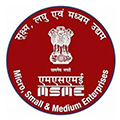VLSI
Start VLSI career with 100% placement assistance.
Designed & Delivered by Industry Experts.
We offer industry standard, high quality, affordable training to students who wish to pursue a career in VLSI .
Arist automation has introduced an end to end VLSI Course for fresh graduates and industry professionals.
The VLSI design course is designed to meet the ever growing demand of the electronic industry. Our VLSI training course is the right combination of classroom sessions, hands-on experience and live real time projects. The training consists of classroom lectures and practical sessions in the initial training program, which is later followed by industry projects in the next training program. After successfully completing the VLSI training program students become proficient and job ready in diverse areas of VLSI Logic and Physical design. The VLSI training program is designed in such a way that candidates master the concepts and design requirements.
This VLSI course is about basic concepts of VLSI System Design. This course will cover end-to-end concepts from basic Elemental Physics, Device Physics to Chip Design like – ASIC, FPGA design flows, and trains engineers extensively on the VLSI design methodologies viz CMOS, VHDL, Verilog and System Verilog.
VLSI Course Modules:
Module 1 -Linux
Introduction : OS
Introduction : Linux OS
Basic Linux, commands
Managing Disk files and directories (folders)
Managing documents – inputs and outputs
Text Editors – vim
Shell Programming – scripting in linux
Labs, Exercises
Advance Linux: Advanced commands, functions
Labs, Exercises, Exam
Module 2-Perl
Introduction
Data Types- Numbers, Strings, Variables, Operators & Precedence
Control Statements, Data Structures (Lists, Arrays, Hash)
Writing PERL scripts, Cheat Sheet
Labs, Exercises, Exam, Project
• Advanced Data Structures, Process Management
• Errors & Exceptions (interrupts) handling, Sockets (IPC)
• External Interface Examples:- CGI Interface, Net (HTML), Interface,
• Database (MySQL) Interface, C Interface.
Module 3-Digital Design
Basics of Digital Design
Understanding Combinational Logic/Circuit Designing
Canonical forms – SOP, POS
Understanding Sequential Logic/Circuit Designing
Digital Design Flow Modeling
• Language Specification
• VHDL/Verilog digital model example
Computer Architecture – RISC, CISC
Advanced Digital Design
Exercises, Exam
Module 4-Verilog
Introduction
Gate level modeling, modeling and concept of wire
creation, module instantiation, ports and their mapping,
Dataflow modeling, Various Operators
Verilog Language & data types
Modeling Delays – specparam
Behavioral modeling
Modeling circuits using all the three modeling styles
Behavioral modeling, File I/O
Switch Level Modeling, User Defined Primitives
Modeling Design Examples (ALU, ROM, RAM, FSM, TRAFFIC LIGHT, CLOCK, USING COUNTER, UART)
Module 5-FPGA
Introduction to FPGA (Architecture :CPLD, FPGA,FPGA working, References)
design flow, design tricks
H/W components on FPGA board and their working
Xilinx ISE tool installation and working
Designing basic FPGA examples (Adder, Subtractor, Counter etc.)
Designing advanced FPGA examples (Key Board Interfacing, VGA,
Monitor interfacing, UART, burn these models on available FPGA kit
Module 6- C & Data Structure
Introduction to C language
Basic Building Blocks of C
Control Flow
Modular Programming
C Preprocessor directives:- Macro definitions, Header file(s) and their inclusion, Conditional compilation
Input / Output:- print formats, Standard I/O, File I/O, C standard libraries & related functions
Advanced Data Types:- Pointers & Arrays, Strings & Enumerations,
Structures & Unions, User defined data types – typedef
Data Structures Creation (Arrays, linked lists, Stacks, queues & priority queues, hash tables
Module 7- System Verilog
Introduction about Verification
Data Types & Operators
Procedural Statements
Tasks & functions
Hierarchy & Connectivity
Various Interfaces
Object Oriented Paradigm (OOPS
Program & Clocking Block
Inter Process Communication (IPC):- events, semaphores, mailboxes
Randomization:- Class based randomization, Constraints
System Verilog Assertions:-properties & sequences, assert, assume, cover directives
Functional Coverage
TLM (Transaction Level Modeling) & UVM
Module 8 – CMOS
Project Work
Module 9-
Soft Skill Training





